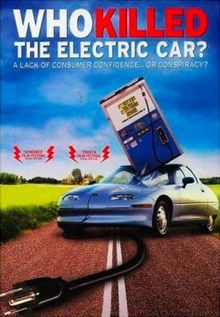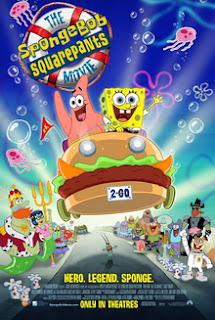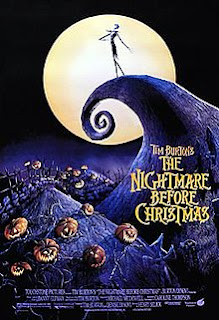Who Killed the Electric Car? (2006)
Getting around is something that
everybody needs to do. The most valuable and profitable source of
transportation is automobiles. However, as the need for fuel supply
is in high demand, the price of oil goes up, and consumers are not
easily persuaded. Enter the electric car: an automobile of the future
that could reduce our oil consumption by a hefty margin. So, why
don't we see a lot of them on the road? There are many possible
answers, as well as solutions and alternatives, that are promptly
explored in the 2006 documentary “Who Killed the Electric Car?”
It is a pretty shocking look at automobiles and the ways alternative
energy can be obtained. But at the same time, the film is somewhat
dated as there have been major strides since this film premiered.
“Who Killed the Electric Car?” is a rather interesting look at
how automobiles can present the new way for the future, but
ultimately, consumers can not be that interested.
The point that the film is trying to
convey is that in the mid-90s, General Motors unleashed unto the
world the electric car. A vehicle that didn't need consumption from
gasoline, and run on a powerful battery that could be charged at
various power stations, or at home. But because of government
interference, especially from the government of California, electric
cars soon had to be taken off the roads, only for destruction or
museum preservation. But why?
“Who Killed the Electric Car?” is a
unique documentary about how persuasive people's minds can be when it
comes to buying cars.
The film explores many subjects that
link to the death of the electric car. Topics include government
intervention, oil and car companies, and of course, the American
consumers.
Now, of course, there really is no
answer to this question, but here's what I think.
Personally, it was a lack of consumer
interest, as well as the car companies realizing that this type of
source would be too much to handle.
For consumers, they were not interested
enough to buy the vehicle, and therefore, the car went into
obscurity. Consumers wanted familiarity, and they got it by not
purchasing an electric car. Also, the electric car was somewhat
expensive as from what people saw, the electric car was something
that mostly rich people- i.e. celebrities- could afford.
For car companies, it was considered a
big gamble. They didn't want to put in enough time and effort to make
electric cars a reality, and with consumers not purchasing them, what
was the point of making them? At least in America.
After this movie came out, car
companies across the Pacific- Toyota and Nissan for example- have
created electric cars that consumers could purchase, and have better
qualities like lower gas mileage and whatnot. Also, car companies
have made major advances in alternative fuel sources, most notably,
hybrids, in producing better vehicles for the general public.
The above paragraph pretty much summons
up what the major issue that this movie has. Had the filmmakers done
a little more research, then the film would have been given a much
better conclusion.
So, “Who Killed the Electric Car?”
is an interesting documentary that has paved the way for future
endeavors. The filmmakers just needed to be more aware of their
facts.




Comments
Post a Comment